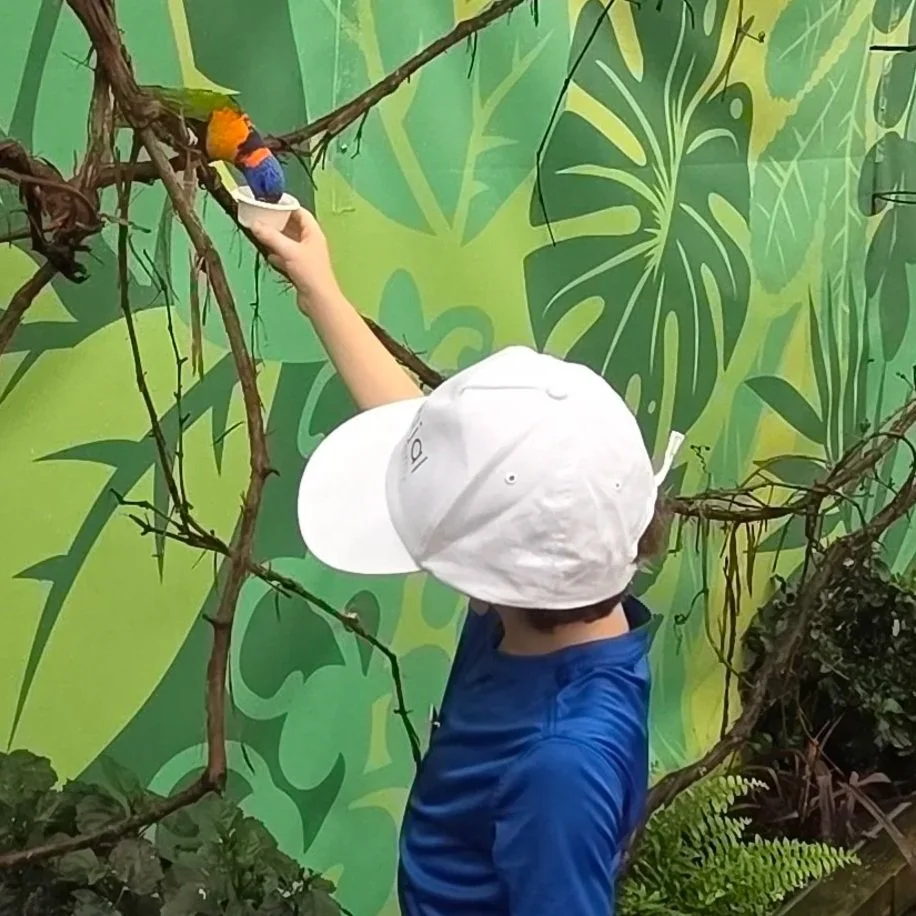We overcome task and school avoidance by shifting the lens from “avoidant behaviors” to “trauma response”
Cajal Academy is not a behavior management school—and we have a very strong track record of overcoming task-avoidant behaviors and/or school refusal as a result.
We understand these challenges within the twice exceptional cohort of students that we serve not as ‘behavior’ problems but as indications of what problem a child needs our help to solve, and as indications of school-based trauma. There is a scientific basis for this assumption. Every task that we perform requires that we employ a shifting mix of neuropsychological skills simultaneously, so having an asychronous neuropsychological profile with some exceptionally high “splinter skills” sitting alongside ones that are below average or even below average creates a dysfunctional academic and life-lived experience. Worse, because life and school tasks don’t come with neon signs warning you which ones will demand the skills where you struggle, kids may be trying to navigate as much as a 90 point gap in their neuropsychological profile with no lens they can use to predict which tasks will be boringly easy, and which will be impenetrably hard. If the former, the task isn’t worth their while. If the latter, it’s likely to re-entrench feelings of failure—and all too often lead to embarrassment in front of peers.
This repeated experience of seemingly arbitrary failure, especially in front of peers, becomes itself a source of school-based trauma for many of the twice exceptional students that we serve. Parent after parent describes watching their “2e” child’s zeal for learning extinguish as they progress through school years, and all too many bright and gifted children shift from loving school to avoiding tasks, or school altogether, at all costs.
Looking across these individual stories, what emerges is that the very fact of having the large gaps within a child’s profile is a setup: a veritable ticking timebomb for school-based trauma, with a fuse that will vary in length depending on when those skills in which they struggle the most will come into high demand in the general education curriculum and typical social development. Indeed, we see clear correlations between the grade level at which a child is likely to devolve into task-avoidant, disruptive or school refusal behaviors on the one hand, and the specific skill weaknesses on the other.
Read these case studies to see how we transform task avoidance into growth
Overcoming task avoidance and school refusal through a Neuro- and Trauma-Informed Approach
We have been very successful in reversing these trends through our research-backed, Neuro- and Trauma-Informed Approach. Drawing on our team’s neuropsychological, psychological and neurophysiological expertise and our research-backed approach, we use the child’s prior diagnoses and our own observations of the common factors among tasks that the child avoids to identify those cross-cutting neuropsychological and/or neurophysiological skills that are required for each of the academic and social tasks where they struggle.
Rather than cajole or punish the child for their non-compliance, we start by validating that they are taking this course because they are up against something that they perceive to be really hard—and recognizing that this may be a rational choice in view of their experiences to date. We then collaborate with the child, taking a trauma-informed problem-solving approach, to identify what underlying factors have lead them to reach this conclusion. These may be a wide range of factors, including prior academic traumas, becoming overwhelmed by executive function requirements of the task, hidden learning disabilities and more. The student’s customized program is adapted as these factors are identified to encompass this new information, and we coach the student in Personalized Strategies they can use to self-monitor, self-manage and self-advocate for these “triggers.”
Perhaps most importantly, we help them to understand their own unique mix of neuropsychological strengths and weaknesses as they stand today, and how we are using neuroplasticity to build up those “Not Yet Skills” that hold them back, through Growth Mindset and Agency Coaching with our co-founder and Head of School helping them to assimilate these factors in real time. This does not mean digging into diagnostic labels like “ASD” or “ADHD” that can become embedded in a child’s identity, holding back their growth mindset. To the contrary, we break down those labels, and focus in on the specific neurocognitive and/or neurophysio skills that are holding them back—and then remind them of how we can build up those skills through neuroplasticity. This helps them to develop an authentic growth mindset, gives them an analytical grip on what may otherwise be an emotionally overwhelming experience and increases their buy in for the difficult therapeutic work that lies ahead.
Over time, this helps them become open to a broader range of academic tasks, as they are better able to assess the likelihood of success, and to brace themselves for the things that will be hard. This in turn results in more opportunities for students to experience their own strengths, which builds momentum towards the growth mindset they need to take the academic risks required to progress.
Moving beyond interests-based education
Many educational settings, including other schools serving twice exceptional students, approach this problem through interests-based education only, and indeed many of the reference sites discussing twice exceptional students in particular assert that the class is characterized by being unable to learn other than through their own interests.
We reject this notion, because that does not prepare our children for the real world, and because our work proves that with this different approach, more can be done. With the comprehensive approach outlined above and our unique Student Growth Catalysts, our students learn to “bring their magic” to external task demands and projects outside their interests: an essential skill for college and the real world beyond. This is fostered and developed through the cohort-wide project-based learning units through which we provide standards-based and intellectually-exciting academic instruction. These projects are 2-3 month deep dives that integrate our curriculum across math, science, social studies, language arts and visual arts, and require students to work together to solve a real world problem. This socially-engaged and intellectually-challenging process itself becomes a draw pulling students back into the learning environment, standing traditional notions of these children’s educational profiles on their head.
Scroll down to read case studies highlighting these student results, or find out more about our unique program with the links below.





